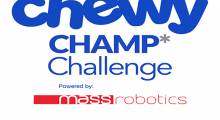It’s mid-September, which means I’m once again in Park City for the Material Handling & Logistics Conference sponsored by Dematic.
This is the 30th year for the event, and the ninth time I’ve made the trek to Utah in the last 12 or so years.
As someone who attends a dozen trade shows, conferences and academic seminars each year, this is one of my favorite events – and, in the interest of full disclosure, it’s not because I was on the conference planning committee for this year’s event.
Rather, it’s because the event is a unique combination of a stellar mountain setting; great food and entertainment; a manageable size that encourages networking and conversation with fellow attendees; and a rich selection of presentations.
What began thirty years ago as a conference focused on operating and maintaining automated equipment has involved into an event with topics of interest to those who work inside the four walls of a distribution center or plant – it is a materials handling conference, after all – but also to people with broader supply chain duties.
This year’s event is dubbed “The Science Of Edge.” It refers to the information and technologies a company needs to get an edge up on the competition. Based on the sessions I attended yesterday and today, three themes are emerging this year.
Automation is not only a game-changer, its becoming a requirement
That message was delivered by John Galiher, the founder and CEO of Preferred Freezer, a 3PL with a focus on refrigerated warehousing. Galiher told the story of a facility PFS recently built in Richland, Washington, that could be the largest automated freezer facility in North America.
It is 455,500 square feet and includes an AS/RS that rise more than 100 feet in the air with 120,000 storage positions for 10-foot tall pallets, a monorail system for moving pallets through the facility and automated truck loading.
The real point of his session, however, was that if automation isn’t on attendees’ road maps, they’re behind the times. “Automation is unavoidable,” Galiher said. “If you don’t embrace it now and spend time to get ahead of the curve, you’ll be behind the times.” He added that in his business, his customers are demanding it.
His advice: If you don’t have experience with automation, start the learning process now, and then start with a small project to get experience, such as retrofitting a part of a warehouse. “Your first project can’t be the biggest bet of your career,” he advised.
Maintenance is more important than ever
Automated systems are more complex than ever. As a result, maintenance has to become a best practice. Galiher made that point in his presentation, warning that it takes a different skill set to run and maintain a highly-automated system and different strategies to stock critical spare parts and backup technologies.
But Galiher was not alone. I attended three other presentations focused on the importance of maintenance. They covered topics as varied as how to create a business continuity plan to get a system back up and running following a disruption; how to develop a high performance maintenance organization focused on preventive and predictive maintenance; and how to deal with the shortage of technicians trained to maintain these systems.
The talent shortage looms large
Speaking of the talent shortage ….On the flight out to Utah, I read an article in Harvard Business Review on the new rules of global competition. HBR’s advice: Go to war for talent! The looming talent shortage was a subtext of almost every presentation I heard today.
In his opening remarks this morning, for instance, John Baysore, Dematic’s North American CEO, noted that investing in talent is a major priority for Dematic – here and abroad.
For those reasons, Dematic has invested in engineering centers in locations as diverse as Monterrey, Mexico, Cairo and Lithuania. Galiher noted that the challenge of finding employees who want to work in a warehouse is one of the factors driving the adoption of automation at PFS.
And, Phil Jones, a group manager in Target’s supply chain group, detailed strategies Target has launched to grow the number of people trained to work in warehouses and maintain automated systems – something he referred to as the “scarcity paradigm.”
Taken together, you get a picture of exciting times for our industry, as our customers adopt automation at higher rates than ever. At the same time, we’ll all have to find solutions to the growing pains associated with finding enough people with the skills to operate and maintain automation.
About the Author
Follow Robotics 24/7 on Linkedin
About the Author
Follow Robotics 24/7 on Linkedin
Article topics
Email Sign Up
















